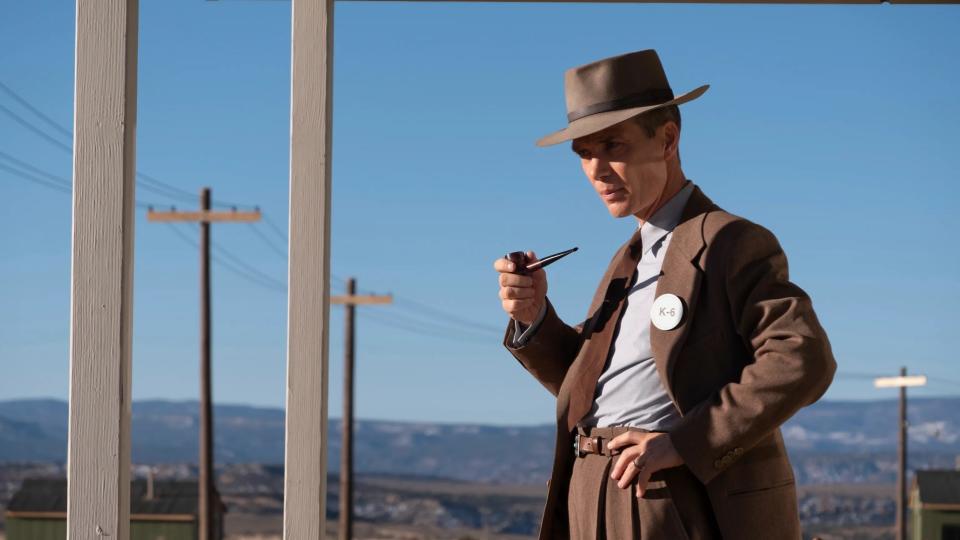Why you should see 'Oppenheimer'
- Oops!Something went wrong.Please try again later.
What Robert J. Oppenheimer—one of the greatest scientific minds of his time and all time—anguished about was the fact that the atomic power he had accessed and unleashed could not ever be limited or contained. And it could destroy worlds. In fact, one of the great scenes in the movie involves Oppenheimer deeply self-identifying with the statement "now I am become death, the destroyer of worlds." While the line is from the Hindu sacred text, Bhagavad Gita, it has been widely used to characterize Oppenheimer's life and work.
(For context and accuracy, I must note that Oppenheimer's story is complicated by his apparent sympathies for the Communism of Soviet Russia.)
Of note, we know from the history of the work of Albert Einstein regarding the development of nuclear power and, while I won't give the plot away, I will say I found the interaction between Oppenheimer and Einstein most intriguing.
I also found fascinating the intersection of American scientists and the U.S. military, and the methods by which such an enormous undertaking was able to be accomplished in utter secrecy.
However, as with so many difficult moral choices in this life, a balancing of the highest stakes was forced upon Oppenheimer.
While he was genuinely unnerved by the destructive power of his nuclear creation, he was actually more terrified that the Nazis would develop a nuclear bomb first. He strongly believed—I feel with great justification—that Hitler would not have hesitated to use a nuclear bomb to achieve world domination.
It also weighed heavily on Oppenheimer and helped persuade him that his effort was just, that the use of the two bombs against Japan would likely end the war and, undoubtedly, save hundreds of thousands of American and allied lives.
Think about that.
Think about the global conflict playing out at that time.
English Prime Minister, Winston Churchill, who single-handedly held the allied forces together for three years in the face of the Nazi onslaught—is said to have wept when he heard that the Japanese had bombed Pearl Harbor. This is because he likely knew that this attack on American soil would force Pres. Franklin D. Roosevelt—who had up to that point directed that huge amounts of arms and supplies be contributed to the Allied effort—to actually commit American troops to the war.

However, had the Nazis gotten access to a nuclear bomb before we did, America's late entrance into World War II might not have mattered!
As the Wall Street Journal summarized Oppenheimer’s life:
“From the moment the atomic bomb was dropped on Hiroshima in August 1945 until his death in 1967, J. Robert Oppenheimer was perhaps the most recognizable physicist on the planet…” However, the rest of his career “would be spent advising humanity how not to be annihilated by the powers of the atom he had conquered. The advice was not always well received: The Atomic Energy Commission stripped him of his security clearance in 1954, in part because of his advocacy for arms control. (The Department of Energy posthumously reversed that decision last year.)” (WSJ, David Nirenberg, July 15, 2023).

I highly recommend to adults seeing this timely and memorable film.
This article originally appeared on Shreveport Times: Why you should see 'Oppenheimer'

